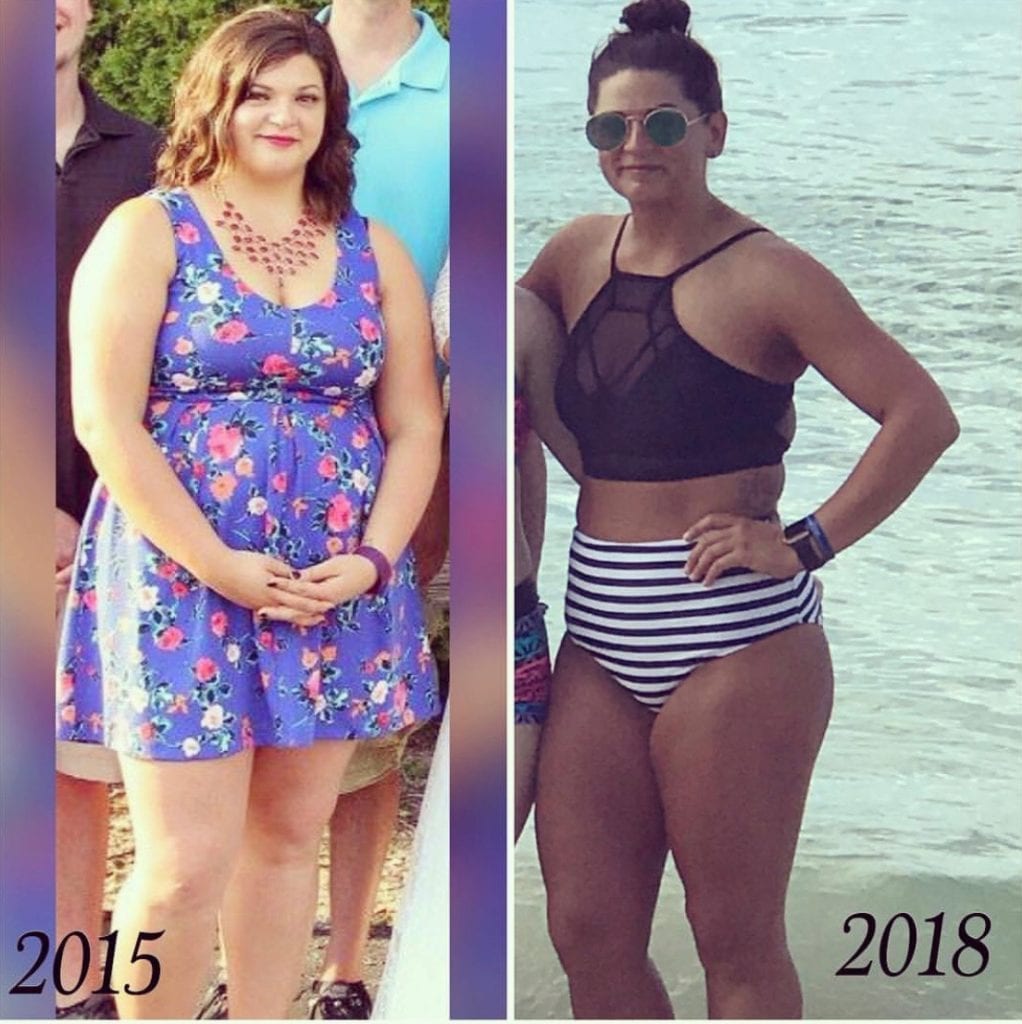Begin a weight loss journey by setting realistic goals and adopting a balanced diet and exercise routine. Consistency and patience are key.
Embarking on a weight loss journey requires a strategic approach tailored to your individual needs and lifestyle. Start by setting achievable and specific goals to keep yourself motivated and on track. Incorporate a balanced diet rich in fruits, vegetables, lean proteins, and whole grains, while reducing sugar and processed foods.
Regular physical activity is crucial; aim for at least 150 minutes of moderate exercise per week. Tracking your progress and staying consistent are essential for long-term success. Surround yourself with a supportive community or seek professional guidance if needed. Remember, sustainable weight loss is a gradual process that requires commitment and perseverance.

Credit: blog.myfitnesspal.com
Embarking On Your Weight Loss Journey
Starting a weight loss journey can be exciting. It is a chance to get healthier and feel better. But, it is important to plan well. Below are key steps to help you begin.
Setting Realistic Goals
Setting realistic goals is crucial. This helps you stay on track. Begin with small, achievable targets.
- Lose 1-2 pounds per week.
- Walk 10,000 steps daily.
- Drink 8 glasses of water each day.
Track your progress. Use a journal or an app. Celebrate small wins. This keeps you motivated.
The Importance Of A Support System
A support system makes a big difference. Friends and family can help you stay focused.
Consider joining a weight loss group. Online communities can also offer support.
| Support Options | Benefits |
|---|---|
| Friends and Family | Encouragement and accountability |
| Weight Loss Groups | Shared experiences and tips |
| Online Communities | 24/7 support and motivation |
Surround yourself with positive people. They will cheer you on. This helps keep your spirits high.
Nutritional Foundations For Weight Loss
Embarking on a weight loss journey requires understanding nutrition basics. The right foods can power your body and help shed pounds. Focusing on macronutrients, whole foods, and hydration is essential.
Understanding Macronutrients
Macronutrients are the nutrients your body needs in large amounts. These include proteins, carbohydrates, and fats. Each plays a crucial role in weight loss.
- Proteins: Essential for muscle repair and growth.
- Carbohydrates: Provide energy for daily activities.
- Fats: Support cell function and protect organs.
Balancing these macronutrients can help manage hunger and provide sustained energy. Aim for a mix of lean proteins, complex carbs, and healthy fats in your diet.
Incorporating Whole Foods
Whole foods are unprocessed and nutrient-rich. They include fruits, vegetables, whole grains, and lean meats. These foods are packed with vitamins, minerals, and fiber.
| Food Group | Examples |
|---|---|
| Fruits | Apples, berries, oranges |
| Vegetables | Spinach, broccoli, carrots |
| Whole Grains | Quinoa, brown rice, oats |
| Lean Meats | Chicken breast, turkey, fish |
Eating whole foods reduces calorie intake and increases satiety. Replace processed snacks with fresh alternatives for better health.
The Role Of Hydration
Hydration is key for weight loss. Water helps your body function correctly and can aid in weight management.
- Drink at least 8 glasses of water daily.
- Start your day with a glass of water.
- Carry a water bottle to stay hydrated.
Water can also help you feel full, reducing overeating. Sometimes thirst is mistaken for hunger. Drink water before meals to prevent unnecessary snacking.
Designing Your Weight Loss Diet Plan
Creating a weight loss diet plan can help you reach your goals. A good plan includes monitoring calorie intake, planning meals, and choosing healthy snacks. Let’s dive into each aspect to make your journey successful.
Calorie Counting Basics
Understanding calories is vital for weight loss. Calories measure the energy in food. Eating fewer calories than you burn leads to weight loss.
Here are some steps to count calories:
- Find out your daily calorie needs.
- Use a calorie tracking app.
- Read food labels carefully.
Track your calories daily to stay on course.
Meal Planning Strategies
Meal planning prevents unhealthy eating. It ensures you consume balanced meals.
Here are effective strategies:
- Plan your meals for the week.
- Include lean proteins, vegetables, and whole grains.
- Prepare meals in advance.
A weekly meal plan makes healthy eating easier.
Healthy Snacking Tips
Healthy snacks can boost your energy and keep you full. Choose snacks that are low in calories but high in nutrients.
| Snack | Calories |
|---|---|
| Apple slices with peanut butter | 150 |
| Greek yogurt with berries | 120 |
| Carrot sticks with hummus | 100 |
Choose snacks wisely to stay on track with your diet.

Credit: burnbootcamp.com
Exercise Essentials For Shedding Pounds
Exercise is key to losing weight and keeping it off. It helps burn calories, boosts metabolism, and builds muscle. To make the most of your weight loss journey, focus on these exercise essentials.
Cardio Vs. Strength Training
Cardio exercises like running, cycling, and swimming help burn calories fast. They improve heart health and endurance. Aim for at least 150 minutes of moderate cardio each week.
Strength training builds muscle and boosts metabolism. It includes exercises like weight lifting, squats, and push-ups. Aim to do strength training at least two days a week.
| Cardio | Strength Training |
|---|---|
| Burns calories fast | Builds muscle |
| Improves heart health | Boosts metabolism |
| Increases endurance | Strengthens bones |
Creating A Balanced Workout Routine
A balanced workout routine includes both cardio and strength training. This ensures you burn calories and build muscle. Follow these steps to create your routine:
- Schedule cardio exercises for 3-5 days a week.
- Include strength training exercises 2-3 days a week.
- Allow at least one rest day each week.
- Incorporate flexibility exercises like yoga or stretching.
Variety keeps your workouts interesting and effective. Try different exercises to keep your body challenged.
Staying Motivated And Consistent
Staying motivated is crucial for weight loss success. Use these tips to stay on track:
- Set realistic goals and track your progress.
- Find a workout buddy for support and accountability.
- Reward yourself for achieving milestones.
- Create a workout playlist to keep you energized.
- Mix up your routine to avoid boredom.
Consistency is key. Stick to your routine, and you will see results over time.
Behavioral Changes For Long-term Success
Embarking on a weight loss journey requires more than just a diet plan. Long-term success depends on making behavioral changes. These changes help maintain a healthy lifestyle. Below are key strategies to ensure lasting results.
Mindful Eating Practices
Mindful eating involves paying attention to your food choices. Focus on the flavors and textures of your meals. Eat slowly and savor each bite. This helps you feel full and satisfied. Avoid distractions like TV or phones during meals. Use smaller plates to control portions. These practices help you enjoy food while eating less.
Overcoming Emotional Eating
Many people eat in response to emotions. Stress, boredom, and sadness can trigger overeating. Identify your emotional triggers. Keep a journal to track your feelings and eating patterns. Find alternative activities to cope with emotions. Exercise, reading, or talking to a friend can be helpful. Replace comfort foods with healthier options. This helps break the cycle of emotional eating.
Developing Healthy Habits
Building healthy habits is crucial for weight loss. Set realistic and achievable goals. Start with small changes and build gradually. Drink plenty of water throughout the day. Incorporate physical activity into your routine. Aim for at least 30 minutes of exercise daily. Prioritize sleep to support overall health. Consistency is key to developing lasting habits.
| Behavioral Change | Action |
|---|---|
| Mindful Eating | Eat slowly, use smaller plates, avoid distractions |
| Overcoming Emotional Eating | Identify triggers, keep a journal, find alternatives |
| Developing Healthy Habits | Set goals, drink water, exercise, prioritize sleep |
Monitoring Progress Without Obsession
Embarking on a weight loss journey involves monitoring progress without becoming obsessed. It’s crucial to track results without letting it dominate your life. Balance is key in maintaining a healthy mindset while pursuing your goals.
The Scale: Friend Or Foe?
The scale can be a useful tool, but don’t let it dictate your mood. Weighing yourself daily can lead to frustration due to natural weight fluctuations. Instead, consider weekly weigh-ins to get a more accurate picture.
Remember, the number on the scale is just one metric. Muscle gain, water retention, and other factors can affect your weight. Keep this in mind to avoid unnecessary stress.
Non-scale Victories
Non-scale victories (NSVs) are milestones beyond the number on the scale. Celebrate fitting into smaller clothes, increased energy levels, or improved fitness. These victories can boost your motivation and keep you focused.
- Clothes fitting better
- Increased stamina
- Better sleep quality
- Improved mood
Tracking NSVs can make your weight loss journey more enjoyable and rewarding.
Adjusting Your Plan As Needed
Flexibility is essential in any weight loss journey. If you hit a plateau, don’t be discouraged. Reassess your diet and exercise routine. Small adjustments can lead to significant changes.
Consider consulting a nutritionist or personal trainer for expert advice. They can help tailor your plan to fit your needs. Remember, it’s okay to tweak your approach for better results.
Keep a journal to document your progress and adjustments. Reflecting on your journey can provide valuable insights and keep you motivated.
| Plan Element | Possible Adjustment |
|---|---|
| Diet | Incorporate more protein |
| Exercise | Increase intensity |
| Rest | Ensure adequate sleep |
Navigating Weight Loss Plateaus
Sustaining Weight Loss And Avoiding Rebound
Starting a weight loss journey is challenging. Sustaining weight loss and avoiding rebound is even harder. It requires dedication, consistency, and lifestyle changes. This section will guide you on maintaining your weight loss and living a healthier life.
The Reality Of Weight Maintenance
Weight maintenance is not as exciting as weight loss. The initial thrill of seeing the scale drop fades. But maintaining your weight is crucial. The body tends to regain lost weight easily. You need a strategy to keep the pounds off.
| Factors | Description |
|---|---|
| Metabolism | Slows down as you lose weight |
| Calorie Intake | Must be balanced with your activity level |
| Consistency | Essential in diet and exercise |
Understanding these factors helps you create a realistic plan. Adjust your habits to sustain your weight.
Lifestyle Changes For Lasting Results
Lasting weight loss requires lifestyle changes. Quick fixes do not work. Here are some tips to help you:
- Balanced Diet: Eat a mix of proteins, carbs, and fats.
- Regular Exercise: Aim for at least 30 minutes daily.
- Hydration: Drink plenty of water. It helps with metabolism.
- Sleep: Ensure 7-8 hours of quality sleep each night.
- Stress Management: Practice yoga or meditation.
Small changes lead to big results over time. Stick to these habits for lasting success.
- Set realistic goals.
- Track your progress.
- Reward yourself for milestones.
Celebrate your achievements. It keeps you motivated and focused.
:max_bytes(150000):strip_icc()/emily-before-after-d6fa2731ac3b4911b8dab9a61a7730ee.jpg)
Credit: www.eatingwell.com
Frequently Asked Questions
How Do I Begin My Weight Loss Journey?
Start by setting realistic goals and creating a balanced diet plan. Incorporate regular exercise into your routine. Track your progress and stay hydrated. Seek support from friends, family, or a professional. Stay consistent and patient with your efforts.
What Is The 30/30/30 Rule For Weight Loss?
The 30/30/30 rule involves 30 minutes of exercise, 30 grams of protein, and 30 minutes of meal preparation daily.
Where Do I Start When I Want To Lose Weight?
Begin by setting realistic goals. Focus on a balanced diet and regular exercise. Track your progress and stay consistent. Consult a healthcare professional for personalized advice.
How To Lose 20 Pounds In A Month?
To lose 20 pounds in a month, eat a balanced diet, reduce calories, exercise daily, drink water, and get enough sleep. Consult a doctor for personalized advice.
Conclusion
Embarking on a weight loss journey requires patience and persistence. Celebrate small victories and stay consistent. Remember, each step brings you closer to your goal. Seek support from friends or professionals to stay motivated. Stay committed, and you will achieve a healthier, happier you.
Make your journey enjoyable and rewarding.


